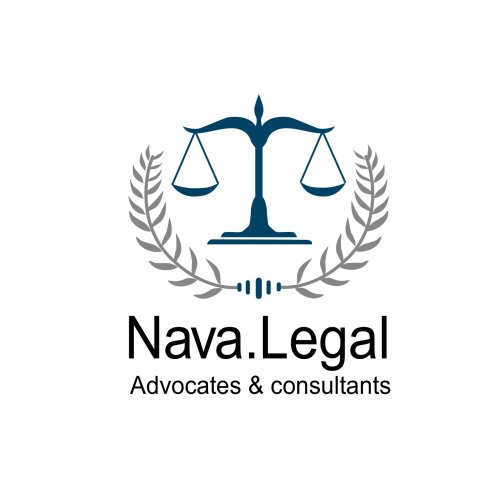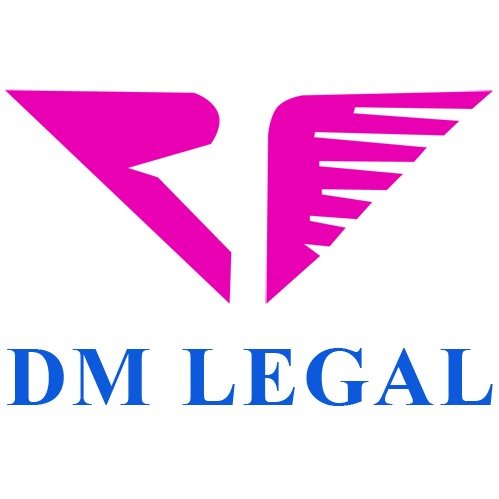Best Personal Injury Lawyers in India
Share your needs with us, get contacted by law firms.
Free. Takes 2 min.
Or refine your search by selecting a city:
List of the best lawyers in India
About Personal Injury Law in India
Personal Injury Law in India is designed to protect individuals who have suffered harm or injury due to the negligence or wrongful actions of others. It encompasses a wide range of situations, including accidents, medical malpractice, workplace injuries, and product liability. The legal framework strives to provide compensation to the affected parties for their losses and suffering.
Why You May Need a Lawyer
There are several common situations where you might require the assistance of a personal injury lawyer in India:
- Road Accidents: Many personal injury cases stem from road accidents involving vehicles, pedestrians, or cyclists.
- Medical Negligence: Instances of medical malpractice or incorrect diagnoses can result in personal injury claims.
- Workplace Injuries: Injuries sustained at the workplace, especially in hazardous environments, may require legal intervention.
- Defective Products: Harm caused by defective or dangerous products can result in product liability claims.
- Slips and Falls: Injuries sustained due to unsafe premises fall under personal injury claims.
Local Laws Overview
The legal landscape for personal injury claims in India is primarily governed by the Indian Penal Code, the Motor Vehicles Act, and the Consumer Protection Act. Some key aspects include:
- Indian Penal Code, 1860: Provides the legal provisions for punishments in cases of negligence leading to injuries.
- Motor Vehicles Act, 1988: Covers road accident claims and lays down the procedure for compensation.
- Consumer Protection Act, 2019: Deals with issues related to defective products and services.
- Limitation Act, 1963: Prescribes the time limit for filing personal injury claims, usually within three years from the date of the incident.
Frequently Asked Questions
What is the first step in a personal injury claim?
The first step is to gather evidence and medical records related to the injury, and if possible, seek immediate legal counsel to evaluate the claim.
How is compensation calculated in personal injury cases?
Compensation is typically calculated based on medical expenses, loss of income, pain and suffering, and any future expenses related to the injury.
Is there a time limit for filing a personal injury claim?
Yes, the Limitation Act, 1963, sets a time limit, and typically personal injury claims must be filed within three years from the date of injury.
Can I claim for emotional distress in a personal injury case?
Emotional distress can be included in a personal injury claim, especially if it affects your quality of life and daily functioning.
Do all personal injury cases go to court?
No, many personal injury cases are settled out of court through negotiations between the involved parties or via alternative dispute resolution methods.
What is the role of insurance in personal injury claims?
In many cases, the compensation is paid by the insurance company of the person or entity responsible for the injury.
How long does it take to resolve a personal injury claim in India?
The duration can vary significantly; some claims are resolved in a few months, while others may take years, depending on the complexity and willingness of the parties to negotiate.
What evidence is required to support a personal injury claim?
Essential evidence includes medical records, eyewitness accounts, photographs of the injury, accident reports, and any other documentation that supports the claim.
Can I represent myself in a personal injury case?
While it's legally possible, it's not advisable due to the complexities involved. Hiring a skilled personal injury lawyer can significantly enhance the chances of a successful claim.
What should I do if the insurance company denies my claim?
If your claim is denied, you can contest the decision via a legal appeal with the help of a lawyer who can assist in negotiating or litigating your case.
Additional Resources
For further assistance, consider reaching out to the following resources:
- National Consumer Disputes Redressal Commission: Handles consumer complaints and product liability issues.
- Motor Accident Claims Tribunal: Specialized tribunal dealing with moto vehicle accident claims.
- Legal Aid Services: Organizations providing free legal advice and support to individuals in need.
- Insurance Regulatory and Development Authority (IRDA): Regulates insurance claims and policies in India.
Next Steps
If you require legal assistance in pursuing a personal injury case, consider taking the following steps:
- Document every detail related to the injury or incident as thoroughly as possible.
- Seek immediate medical attention for your injuries and retain all related documentation.
- Consult an experienced personal injury lawyer who can guide you through the process of filing a claim.
- Communicate with your lawyer regarding any interactions with insurance companies or opposing parties.
- Stay informed and involved in your case to ensure that all steps are being taken efficiently.
Lawzana helps you find the best lawyers and law firms in India through a curated and pre-screened list of qualified legal professionals. Our platform offers rankings and detailed profiles of attorneys and law firms, allowing you to compare based on practice areas, including Personal Injury, experience, and client feedback.
Each profile includes a description of the firm's areas of practice, client reviews, team members and partners, year of establishment, spoken languages, office locations, contact information, social media presence, and any published articles or resources. Most firms on our platform speak English and are experienced in both local and international legal matters.
Get a quote from top-rated law firms in India — quickly, securely, and without unnecessary hassle.
Disclaimer:
The information provided on this page is for general informational purposes only and does not constitute legal advice. While we strive to ensure the accuracy and relevance of the content, legal information may change over time, and interpretations of the law can vary. You should always consult with a qualified legal professional for advice specific to your situation.
We disclaim all liability for actions taken or not taken based on the content of this page. If you believe any information is incorrect or outdated, please contact us, and we will review and update it where appropriate.
Browse personal injury law firms by city in India
Refine your search by selecting a city.
















